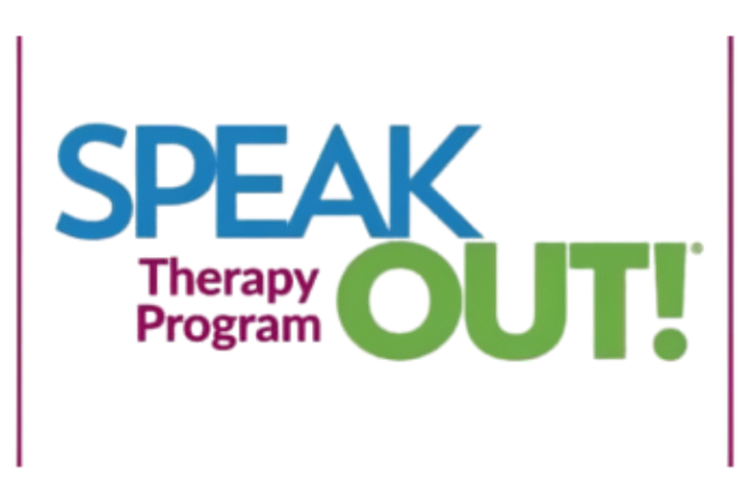
Speech Therapy for
Parkinson's Rehabilitation
Specialized voice, speech, and swallowing therapy.
Specific Treatments Offered:
-
SPEAK OUT!®
-
Increasing vocal loudness
-
Improving speech clarity
-
Enhancing respiratory support
-
Intentional speaking strategies
-
-
LOUD Crowd - Ongoing group therapy for graduates of SPEAK OUT!
-
Maintains voice and speech improvements
-
Prevents decline through continued practice
-
Hybrid format (in-person and online)
-
Community support and accountability
-
What It Treats:
-
Reduced speech volume (hypophonia)
-
Monotone/flat speech patterns
-
Slurred or mumbled speech (dysarthria)
-
Rapid or slow speaking rates
-
Breathy, rough, or strained voice
-
Difficulty being heard in groups
-
Short phrases due to breah support issues
Evidence-Based Approach
High-intensity, speech-focused exercises that target the specific speech changes in Parkinson's disease

The SPEAK OUT!® Therapy Program is an evidence-based, systematic speech therapy program for individuals with Parkinson's disease and other neurological conditions affecting speech and voice. It is a high-intensity program that uses speech exercises and functional phrases to strengthen speech clarity, vocal loudness, and overall communication effectiveness through repetitive practice and motor learning principles.
Speech Therapy for Adults

Synergy Therapy Solutions, can help you form new connections and reinforce the old ones. Brain injury or stroke shouldn't slow you down. The goals we develop will be formed around your real-life situations so progress continues.
After a diagnosis with Parkinson's, you could experience these symptoms:
Volume & Loudness Issues:
-
Reduced speech volume (hypophonia) - speaking too softly to be heard
-
Difficulty projecting voice in groups or noisy environments
-
Gradual decrease in loudness as speaking continues
-
Vocal fatigue - voice weakens during conversations
Speech Clarity Problems:
-
Slurred or mumbled speech (dysarthria)
-
Imprecise articulation of consonants
-
Words "running together"
-
Difficulty being understood by family and friends
-
Speech sounds "mushy" or unclear
Voice Quality Changes:
-
Breathy voice quality
-
Rough or hoarse voice
-
Strained or harsh vocal quality
-
Monotone or flat voice (reduced pitch variation)
-
Loss of vocal inflection and emotion
Speech Rate & Rhythm:
-
Rapid or accelerated speech (tachyphemia)
-
Short rushes of speech followed by pauses
-
Difficulty controlling rate of speaking
-
Festinating speech (starting slow, then speeding up involuntarily)
Breathing & Phrasing:
-
Short phrases due to breath support difficulties
-
Running out of air while speaking
-
Speaking on residual air
-
Poor coordination of breathing and speaking
-
Shallow breathing patterns
Prosody & Expression:
-
Monotone speech pattern
-
Reduced stress and emphasis on words
-
Loss of natural speech melody
-
Flat emotional expression in voice
-
Difficulty conveying emotions through voice
Initiation & Fluency:
-
Difficulty starting speech
-
Hesitations or pauses mid-sentence
-
Word-finding difficulties (not primary Parkinson's symptom but can occur)
-
Repetition of sounds or syllables
Other Related Issues:
-
Facial masking affecting speech production
-
Drooling or saliva management issues affecting articulation
-
Tremor occasionally affecting voice quality
-
Soft speech even when trying to speak louder
If you or your loved one is experiencing any of these symptoms, Synergy Therapy Solutions is here to help. Book an appointment today.
